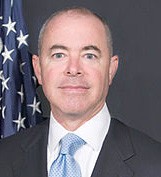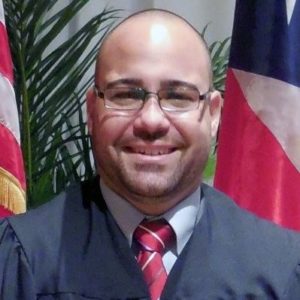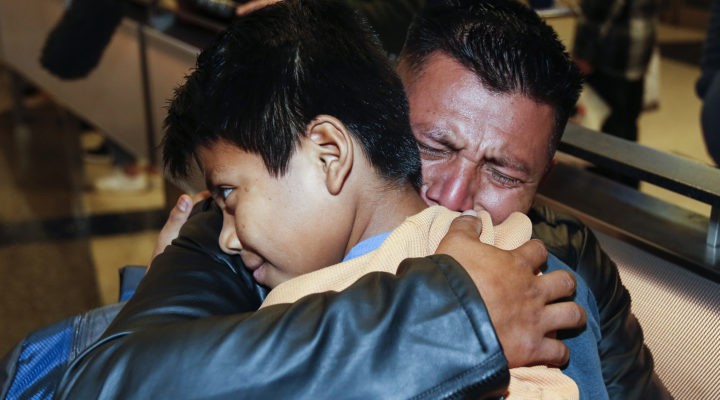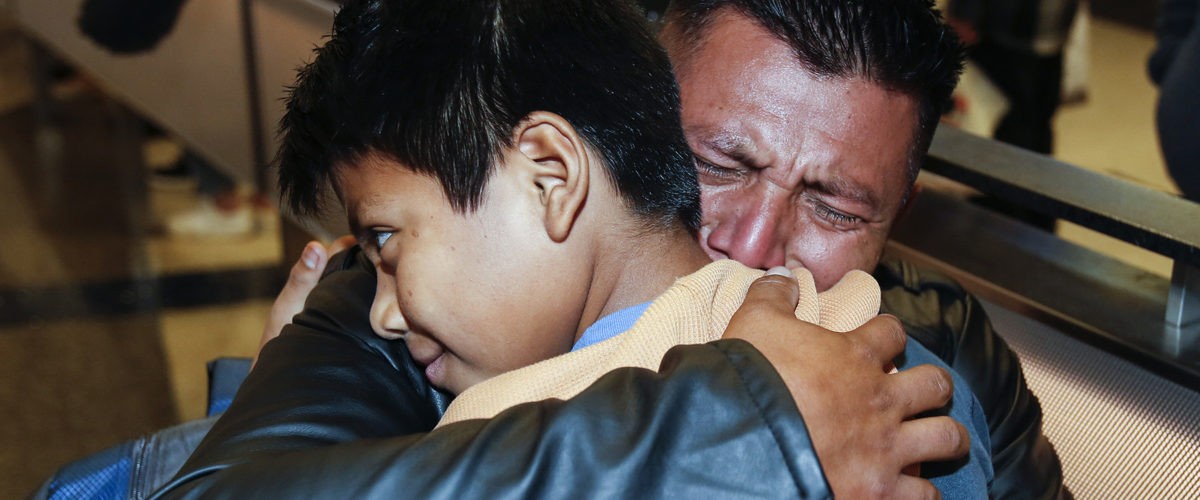Immigrant rights groups and faith leaders applauded the announcement that the U.S. Department of Homeland Security this week will begin a new phase of reunification for families separated from their children at the U.S.-Mexico border by the Trump administration.
Alejandro Mayorkas, secretary of Homeland Security, announced May 3 that the first group of families still disconnected from their children will be reunited this week. At least 445 children — and likely more — are believed still held in U.S. custody because the Trump administration did not keep track of where parents went and how to reconnect them with their children.
How children were taken and kept
Beginning in July 2017, the administration under the leadership of White House adviser Stephen Miller enacted a “zero tolerance” policy that included family separations as an intended deterrent to immigrants coming across the border. Under this policy, the U.S. government retained the children of immigrants while sending the parents back to Mexico or other countries.
The exact number of families affected is not known. The U.S. government has admitted to separating 5,460 children from their parents or caretakers from July 2017 through June 2018 — plus another 1,090 children between June 2018 and October 2019, which was after a court ordered the administration to stop the practice.
“These numbers likely omit hundreds — if not thousands — of families separated at the border that have not yet been disclosed by the government.”
“These numbers likely omit hundreds — if not thousands — of families separated at the border that have not yet been disclosed by the government,” according to a report by the Catholic Legal Immigration Network, which has been working directly with the affected immigrant families through its Defending Vulnerable Populations Program.
The court ruling in June 2018 set the stage for many of the thousands of children to be reconnected with families, eventually dropping the number of unresolved cases to still more than 600.
The New York Times reported April 7 that the parents of only 61 more migrant children separated from their families at the border were located in February and March, leaving an estimated 445 children still separated from parents. This information was made public in a court filing necessitated by the previous court order that authorized the American Civil Liberties Union to find a way to reunite families when the Trump administration couldn’t.
“Of the 445 remaining children, a majority are believed to have parents who were deported, while more than 100 children are believed to have parents currently in the United States, according to the court filing,” the Times said. “The government has yet to provide contact information that would help locate the families of more than a dozen children.”
A promise to reunite families
After his inauguration, President Biden established a task force to figure out how to resolve the remaining cases created by his predecessor’s policies.

Alejandro Mayorkas
“The Family Reunification Task Force has been working day and night, across the federal government and with counsel for the families and our foreign partners, to address the prior administration’s cruel separation of children from their parents,” Secretary Mayorkas said. “Today is just the beginning. We are reuniting the first group of families, many more will follow, and we recognize the importance of providing these families with the stability and resources they need to heal.”
Much more to be done
While that’s welcome news, it does not mean the repair work on one of the Trump administration’s most controversial policies is anywhere near done, according to those working most closely on the issue.

Elket Rodriguez
“Parents are finally able to hug, kiss and laugh with their children after years of forced separation. We should celebrate and rejoice with them. I know God does and he cares,” said Elket Rodriguez, who advocates for immigrants along the U.S.-Mexico border on behalf of the Cooperative Baptist Fellowship and Fellowship Southwest. “In fact, our immigration system should reflect the same spirit of dignity, love and welcome to our neighbors that this family reunification initiative embodies.”
However, even apart from the much-criticized Trump policy, “it takes years, and sometimes decades, for a family member to reunite with their U.S. citizen relative under our current immigration system. That’s totally unconscionable. That’s why we need to reform our immigration system so it can respond to the family reunification needs of our citizens.
Ann Garcia, staff attorney for Catholic Legal Immigration Network, also expressed joy mixed with a realism about what remains.

Ann Garcia
“Tomorrow, a mother from Honduras will be able to embrace the children she hasn’t seen in three and a half years,” said Garcia, whose organization goes by CLINIC for short. “This family was cruelly separated by the Trump administration. The trauma these children and mom have been through will take years to overcome, if ever. It took an army of lawyers, people of faith, and a change at the highest levels of government to reunite this one family.”
This reunification, while good, “will be just the beginning,” she said. “There are many more reunifications to come.”
A mother’s story
The plight of these children and their parents became a rallying point not only for faith groups but also for political opponents of the Trump administration who effectively used the failed policy as a campaign talking point. Images of children being held in cages at migrant processing centers captured the public’s attention.
What also happened beyond those photos, though, was a vast distribution of some migrant children to American families for foster care, where some foster parents then attempted to adopt the migrant children — with no notice required to their biological parents, even if they could be found.
CLINIC tells the story of one parent whose child was taken away at the border and sent to foster care. Here is that mother’s story, verified by CLINIC staff:
“The worst part was that where they took my daughter, they got it into her head that her dad and I did not want her anymore because we had brought her here.”
“I dread remembering this day, May 27, when they separated me from my daughter. I will never forget this frightful day, when they treated me like an animal. Without any explanation, they treated me like a criminal, with my hands and feet chained. In jail, I did not know anything about my daughter for a month. I fainted many times from crying so hard. I asked one guard or another about my daughter and they just laughed at my pain, but they did not tell me anything about my daughter. The worst part was that where they took my daughter, they got it into her head that her dad and I did not want her anymore because we had brought her here. I never, never want to go through this again, and I do not want this to happen to anyone else. It is inhumane. Only someone without a heart could do this.”
This illustrates the trauma parents and children suffered through the U.S. policy, according to position papers created by CLINIC.
“The separated families — whether reunited or still separated — are still reeling from the trauma of the separation,” the agency explained. “For those who were reunited, the prospect of re-separation if they do not win their asylum claims makes healing more difficult. But the Trump administration’s radical changes to asylum law make prevailing on asylum claims infinitely harder, especially without access to government appointed counsel. Parents who remain separated from their children have been forced to watch their children grow up over video calls, and their children have been forced to integrate into a new country without their parent.”
Interagency cooperation
Solving the last few hundred cases of children still separated from parents has required intensive interagency cooperation, Secretary Mayorkas said May 3.
The task force established an updated database of separated families, sought to correct inaccuracies in the files they were provided and then build new processes that involved the Department of Homeland Security, Department of State, Department of Health and Human Services, and the Department of Justice.
As a result, DHS now has a process for accepting parole requests from separated parents who were afraid they would face imprisonment if they returned to claim their children, Mayorkas said. The task force also created a “streamlined system for processing in-country requests for travel documents to enter the U.S.”
The next report of the task force is due June 2.
Related articles:
400 faith leaders ask Trump to end immigrant family separations
About those 545 kids still separated from parents: Expect long-lasting psychological distress
Panelists debate how to ‘normalize’ immigration after ill effects of Trumpism


